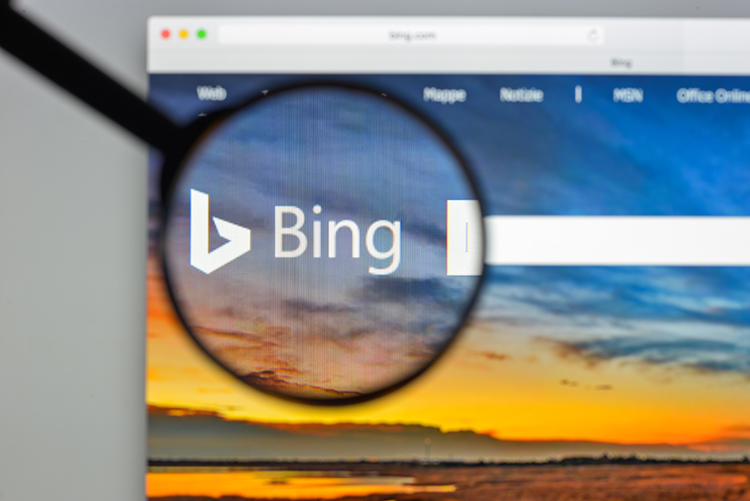When thinking about SEM approaches, most of us are hyper-focused on Google because of its stranglehold on market share and status as the search engine that’s pretty much synonymous with the act of searching itself. Google had its Kleenex moment, so other search engines have been playing a distant second fiddle for quite some time. Add to that Google’s enormous investments into its algorithms and advertising tools, and it’s not hard to understand why “Google-first” SEM isn’t a problematic position—or is it? Google-first is still a viable strategy, but Google-only might be a mistake. I’ll explain why.

How ChatGPT May Change the Game for Bing
While no one can be sure what the future will hold for the search engine, it seems that Bing is having a bit of moment thanks to its pending integration with OpenAI’s now-famous language model AI, ChatGPT. Chat GPT has caused a stir around the world, with news outlets and educational institutions abuzz about the AI’s abilities—and potential for abuse. OpenAI is owned by Microsoft and they’re allowing some of their impressive offerings – including ChatGPT and DALL-E 2, the image generator AI – to be integrated into Microsoft products and services.
You may ask yourself, doesn’t Google have an AI in the works? And the answer is yes…but there have been some unfortunate complications. While ChatGPT dazzled from day 1 (with its shortcomings being discovered later), Google’s attempted answer to rival AI technology, named Bard, fizzled on its debut. Bard’s debut was announced early in February, and shortly after there were issues discovered with its factuality in a promotional demo. A less-than-glowing writeup from the Verge notes, “Google has been scrambling to launch a competitor to ChatGPT – but perhaps rushing a little too hard.”1 While both AI models have been shown to occasionally give false or misleading information, the hype and buildup to Bard worked against Google. This fiasco caused Google to lose $100 billion in market value shortly after with a share crash of 9%, while Microsoft shares rose 3% during that same time period.2
Both companies are planning to integrate their AI into search functions, but in this case, Microsoft (and Bing) won the hype battle. Bing Search reported a large jump in relevance and popularity after unveiling their integration plans, and there are signs of a major update to Bing’s algorithm.3 Barry Schwartz from Search Engine Land asserts, “While [Bing] has a much smaller market share compared to Google, [it] is still a player in search. It may be an even larger player in search in the coming months and years if it can continue to improve relevancy and innovate with new search concepts, such as chat and other AI integrations.”
So what do I need to know about Bing SEM strategy?
Bing is still a much smaller player than Google, despite the recent buzz. StatCounter puts Bing at only 2.81% of the global search market as of February 2023 (compared to 93.37% for Google), while Statista puts it at a much healthier 8.85% (compared to 84.69% for Google).4,5 If we restrict the stats to just the U.S., Bing is a little stronger, with 15% of U.S. searches going through Bing, according to HubSpot.6 Whatever the case may be, it’s not a negligible player. Treating it as such can mean missing out on some low-cost SEM opportunities. If we consider the potential draw of ChatGPT, which has a waiting list to use because of its wild popularity, search market share may change to Bing’s advantage in the coming year.
A few things to note about Bing: First, Bing is considered an affordable option for paid advertising and generates relatively strong click-through rates. Cost-per-click on Bing is estimated to be about 70% lower on the whole than Google Ads.7,8 Also, certain demographics can be counted on to use Bing more than others, especially older, white-collar Americans with incomes over $100,000.8 Because Bing search is integrated with Windows machines and browsers and older adults are more likely to go with the default rather than customizing their browser, it’s not a surprise that the senior presence on Bing is stronger. Bing also partners with smaller players like Yahoo!, AOL, DuckDuckGo, and others to power results and ads, so there’s value across platforms.
Putting a little effort and money towards Bing is a smart and relatively safe play. You can always keep your eye on its popularity and increase involvement if you think it’s warranted for your industry vertical, which is a lot easier to do when you have a basic foundation already in place. Even the simple act of having a Bing business account and properly tagging your site will help improve your visibility on the search engine. If you’re a business, claim the business on Bing Places just as you did for Google. Strategies that work well on Google can pay off on Bing too, especially paying attention to on-page SEO principles, putting out regular content, and keeping load times quick.
Interested in seeing whether adding a Bing SEO or SEM play is a good option for your industry or niche? We would love to work with you to develop a strategy that supports your business goals. Let’s have a chat to see how our expertise can help.
References:
- https://www.theverge.com/2023/2/8/23590864/google-ai-chatbot-bard-mistake-error-exoplanet-demo
- https://www.livemint.com/companies/news/google-sheds-100-bn-market-value-after-bard-makes-error-in-ad-11675901851508.html
- https://searchengineland.com/microsoft-bing-saw-the-largest-relevancy-jump-in-search-in-two-decades-392969
- https://gs.statcounter.com/search-engine-market-share
- https://www.statista.com/statistics/216573/worldwide-market-share-of-search-engines/
- https://blog.hubspot.com/marketing/top-search-engines
- https://www.thinkorion.com/blog/bing-ads-vs-google-ads
- https://truelist.co/blog/bing-facts/